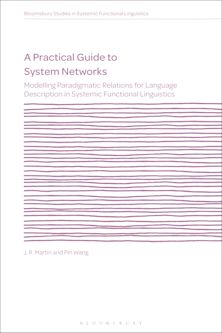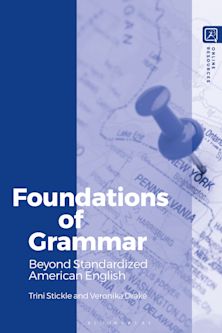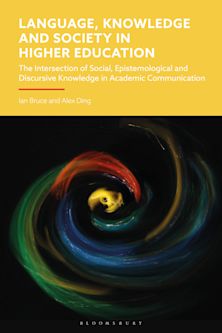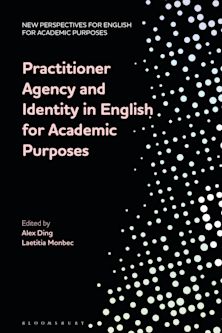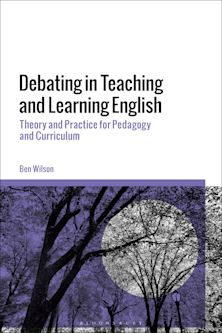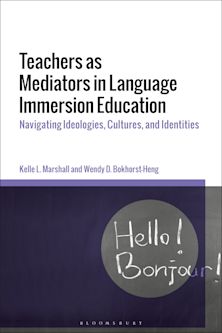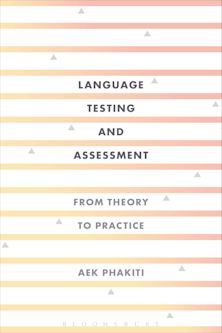English Language Teacher Education in Latin America
Autoethnographic Insights
English Language Teacher Education in Latin America
Autoethnographic Insights
Payment for this pre-order will be taken when the item becomes available
Description
This pioneering collection provides a space for Latin American English language teacher educators and leaders to share their innovative professional practices.
Their autoethnographic contributions adeptly intertwine personal trajectories with wider societal and pedagogical narratives, elucidating crucial themes across the region's terrains.
Latin America's English language pedagogy still trails behind on the global stage despite countries like Argentina, Brazil, and Colombia bolstering their English teacher education and enhancing the delivery of English as a foreign language. This landscape demands a deeper scholarly inquiry, particularly at the crossroads of innovative pedagogies and their real-world applications within the distinctive milieu of Latin America. Spanning the entire continent and a vast variety of teaching and learning contexts, this book's contributors tackle challenges including collaboration, professional identity and development, queer texts, democratizing access, social justice and materials design.
Gathering perspectives and experiences through auto-, duo- and trio-ethnographic chapters, this collection of personal and deeply collaborative reflections is a powerful account of first-person lived experiences in TESOL teacher education in Latin America.
Table of Contents
1. Autoethnography, English language education, and Latin America: Rationale and introduction to the volume, Raúl Alberto Mora (Universidad Pontificia Bolivariana (UPB, Colombia)) and Luis Javier Pentón Herrera (Akademia Ekonomiczno-Humanistyczna w Warszawie, Poland)
Section I: ELT Learning from Latin American Teacher Educators
2. Unveiling identities: Language teacher-educators' journey towards social justice in their methodology courses, Ana Cecilia Cad (Universidad Nacional de Córdoba, Argentina), Vanesa Cladera (Universidad Autonoma de Entre Ríos, Argentina), & María de los Ángeles Bortagaray (Universidad Autonoma de Entre Ríos, Argentina)
3. Flapping butterflies' wings: A collaborative ethnographic account in language teacher education in Brazil, Larissa Borges (Universidade Federal do Pará, Brazil), Walkyria Magno e Silva (Universidade Federal do Pará, Brazil), & Eduardo Castro (Kanda University of International Studies, Japan)
4. Knitting narratives: A duoethnographic exploration in the journey to becoming English language teacher educators, Daniela Appelgren (Universidad Diego Portales, Chile) & Malba Barahona (Pontificia Universidad Católica de Chile)
5. A collaborative autoethnography of turning ourselves inside out: Showing our aches and pains but also gains of being English language teacher educators, Jairo Castañeda-Trujillo (Universidad Surcolombiana, Colombia), Carmen Helena Guerrero (Universidad Distrital Francisco José de Caldas, Colombia), & José David Largo (Universidad Nacional de Colombia, Colombia)
6. Driving professional practice in Cuban teacher education for innovative success in a challenging context: A duoethnography, Isora Justina Enríquez O´Farrill (University of Pedagogical Sciences Enrique José Varona, Cuba) & Eduardo Garbey Savigne (University of Medical Sciences of Havana, Cuba)
7. Identity and agency unplugged: A duoethnography on being a Costa Rican English language teacher educator, Lena Barrantes Elizondo (Universidad Nacional, Sede Regional Brunca, Costa Rica) & Joshua Gordon (University of Northern Iowa, USA)
8. Mapping professional development trajectories: A collaborative autoethnographic study of three women language teacher-educators, Tammy Fajardo Dack, Juanita Argudo-Serrano, & Monica Abad-Celleri (Universidad de Cuenca, Ecuador)
9. Our professional development journeys as teacher-educators: A duoethnographic research from Mexico, Araceli Salas and Marisol Guzmán Cova (Benemerita Universidad Autonoma de Puebla, México)
10. Educational innovation in English language teaching: Autoethnographic reflections from a public university in Nicaragua, Julio Roa Rocha and Marjorie Gómez Talavera (Universidad Nacional Autonoma de Nicaragua)
11. Learning to teach English in global contexts: An open-access collaborative textbook experience, Valentina Canese (Universidad Nacional de Asunción, Paraguay) & Susan Spezzini (University of Alabama at Birmingham, USA)
Section II: ELT Teacher Education Learning from Latin American English Teachers
12. Teaching Aymara and English in a multilingual Bolivia: A duoethnographic account from two language teachers with a struggling professional identity, Beatriz Erazo (Universidad Mayor de San Andrés, Bolivia and Universidad Católica Boliviana, Bolivia) & Rita Flores (Universidad Mayor de San Andrés, Bolivia & Universidad Pública de El Alto, Bolivia)
13. A collaborative autoethnography of democratizing access to English teaching in the Dominican Republic's public schools, Laura Baecher (Kean University, USA), Beth Clark-Gareca (Binghamton University, USA), & Luz Andujar de Jesus (Binghamton University, USA)
14. Access to education in Honduras: A duoethnographic account of the eternal pursuit of bridging the gap and providing access to opportunities, Grazzia Mendoza (University of Wisconsin-Madison, USA) & Juana de Ayestas (Zamorano University, Honduras)
15. A duoethnography dialogue of challenges and triumphs while teaching English in Panamá, Juan Ríos Vega (Bradley University, USA) & Roberto Arroyo
16. Empowering voices: The educational trajectory of two Peruvian English-language educators, Glenda Gallardo (Universidad de Lima and Universidad Peruana de Ciencias Aplicadas, Perú) & Karen A. Meza Fernandez (Harvard University Graduate School of Education, USA)
17. Venezuelan socialism and the destruction of English language education: An Autoethnographic account, José Franco (Lexington School District Four, South Carolina, USA)
Afterword, Luciana C. de Oliveira (Virginia Commonwealth University, USA)
Product details

| Published | 16 Apr 2026 |
|---|---|
| Format | Ebook (Epub & Mobi) |
| Edition | 1st |
| Extent | 312 |
| ISBN | 9781350524262 |
| Imprint | Bloomsbury Academic |
| Series | Critical Approaches and Innovations in Language Teacher Education |
| Publisher | Bloomsbury Publishing |













